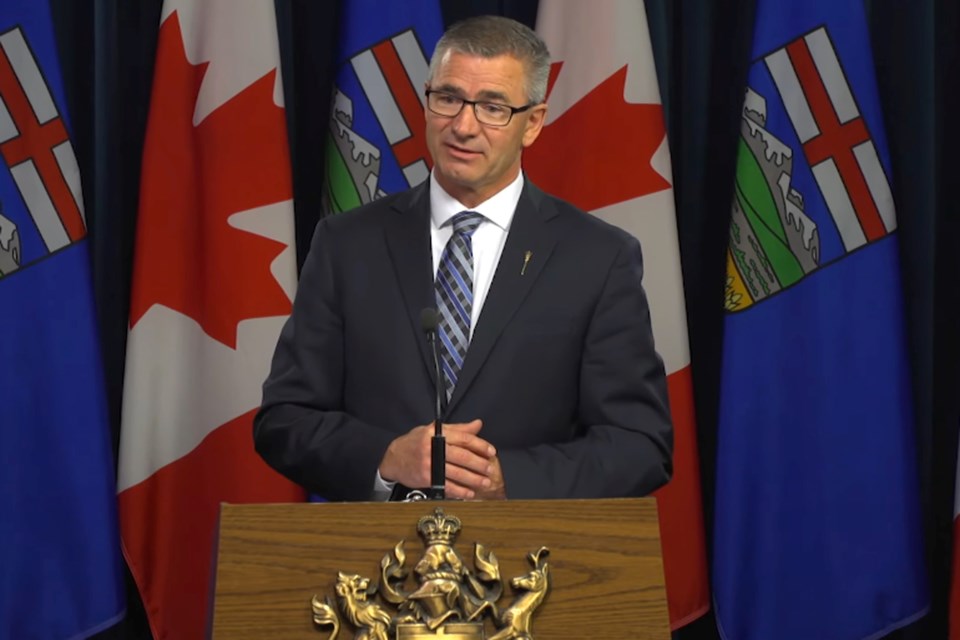BARRHEAD - The provincial government has put forward legislation that would restrict how school division can spend operating reserves until caps can be imposed in September 2022, a move that has been welcomed and criticized.
Bill 5 — also known as the Fiscal Measures and Taxation Act, 2020 — was tabled in the Alberta Legislature on March 3 and immediately passed first reading. The legislation contains a number of measures pertaining to life insurance policies and short-term rentals offered through online marketplaces, but it also implements a part of the new K-12 funding model.
Specifically, Bill 5 enacts a requirement that school boards must obtain Ministerial approval before they can spend their reserves.
Travis Toews, Alberta Minister of Finance and president of the Treasury Board, said this is a “temporary measure” until caps can be imposed on operating reserves in September of 2022.
“I believe this will … help ensure resources get into classrooms and result in better outcomes for Alberta students,” said Toews, during a press conference.
When asked if this was infringing on the autonomy of locally-elected school boards, Toews again stressed the point that this is a temporary measure until the reserve caps can be put into place, and is meant to ensure that education funding is spent on students.
“I’m very confident that the education minister will continue to respect the autonomy of elected school board officials,” he said.
Toews declined to say what kind of caps the province was looking to impose on school board reserves.
The Alberta School Boards Association (ASBA) was asked for a comment on this issue. While president Lorrie Jess was unable to do an interview, she did provide a statement.
Jess said it is important that individual school boards retain maximum flexibility in determining how funding is used as they best understand their local contexts.
“While boards appreciate that their operational funding has increased, they will still face challenges, and need the autonomy and flexibility to determine how best to serve students, as they are connected and responsive to the individual needs of their communities,” she said.
“This includes the flexibility to adjust budgets and use reserves in a way that reflects their local realities.”
Candy Nikipelo, chair of the Aspen View School Division, said they briefly discussed the proposed legislation during their March 5 meeting.
Noting that she didn’t have a lot of information on the bill beyond an e-mail from the education minister, Nikipelo said she had heard about the caps being imposed on operating reserves in the 2022-2023 school year.
With that in mind, Nikipelo said Aspen View has a very small operating reserve right now, so a cap on reserves was unlikely to have any impact.
“I would think that the metro divisions are going to be much more impacted, because they’re dealing with much bigger numbers than we are,” she said.
“We have not been in a financial position where we have been growing a reserve, by any means. If anything, we have been spending down (our reserves) and we’ve kind of reached a point where we can’t spend down anymore.”
Nikipelo said she didn’t know what the rationale was for imposing these caps or requiring school boards to get Ministerial approval to use their reserves, but she suggested that the province is perhaps trying to reel in spending within the education world and perhaps make school boards a little more accountable.
She also pointed out that the province mandates school boards to keep reserves at a certain percentage of their budgets. As well, divisions must actually submit their budgets to the province for approval before the start of a new school year.
When asked if this was infringing on the autonomy of school boards, Nikipelo said yes, but she also felt there was good reasoning behind what the province is doing.
“The sky is not always falling when the government is making decisions like this,” she said.
She added that school boards ultimately have to adjust to whatever decisions are made by the province.


